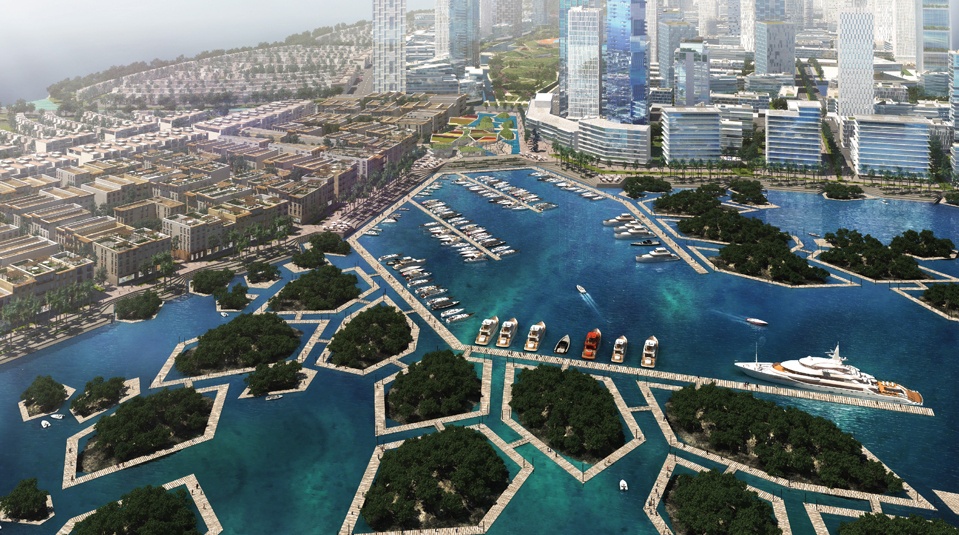Property is a unique game in Indonesia, one with many stakeholders and nuances. Because of this, it has been a breeding ground for bribery and corruption.
It is no secret that when it comes to property development projects in Indonesia, whether they’re fueled by state revenue or private investors, a great many are potential hotbeds for corruption. In Transparency International’s Corruption Perceptions Index, the country was ranked 88th in recent years, suggesting that Southeast Asia’s largest economy is surely rife with bribery and illegal money siphoning in its real estate space.
Considering that property projects by their very nature have many public and private ‘links in the chain’ so to speak when it comes to individuals and organizations that must be dealt with, this means the industry is more vulnerable than most to illegal activities, big and small.
The Sea Wall Scandal
Some years ago, the Indonesian government presented a master plan for Jakarta’s ‘Giant Sea Wall,’ slated to be located in the bay just north of the capital city. This project hinged upon the construction of a literal giant wall that would protect Jakarta from floods brought in by the ocean.
The wall would feature big lagoons that would act as safeguards for outflows from the 13 rivers in Jakarta.
Although the groundbreaking ceremony for this massive project took place in October of 2014, reports indicate that viability studies are still being run.
In the meantime, in the space between the coastline and where the wall would go, there is room for a massive urban development initiative. The plan is to build 17 artificial islands in the Jakarta bay for property projects – apartments, towers, malls, hospitals, parks, houses, beaches, infrastructure and more.
The sea wall was a government project, but the land reclamation in the bay only had oversight from the city’s administration, which soon invited private investors into the fold. So far, a few of the artificial islands are already underway.
However, in September of 2016, the Jakarta Corruption Court found former Agung Podomoro Land (APL) director Ariesman Widjaja guilty of bribing a former legislator. The bribe was an attempt to influence deliberations on two draft bills concerning Jakarta’s Zoning Plan and Coastal Northern Territory for the period 2015 to 2035, according to Indonesia Investments.
The bribe was also meant to sway the North Jakarta Strategic Area Regional Spatial Plan. Former city councillor Muhammad Sanusi was the alleged recipient of the money and he was also named as a suspect in the case.
Widjaja was sentenced to three years in prison and given a slap on the wrist with a fine of Rp.200 million (US$15,300). He was even given the option to parlay that fine into three more months of prison time. Widjaja’s assistant, the person who actually delivered the bribe money, was also given a 3.5-year prison sentence and an Rp.200 million fine.
Property Cash Stash
Most people in Indonesia are aware to one degree or another about the government’s tax amnesty programme. The initiative actually fell short of its ambitious collection goals (only pulling in a mere US$11 billion of the targeted US$75 billion in repatriated funds). But one interesting thing did happen as a result. The programme shone a bright light on the pervasive nature of tax evasion by the country’s richest individuals. Property played a unique role in the story.
The reason the collection target was not reached was because an estimated 50 percent of the overseas holdings were in the form of property (apartments and buildings).
Intelligence collected on billions of previously undeclared assets has provided interesting revelations into into not only what locals have stashed away abroad, but also what they have hidden at home in the form of untaxed real estate in the archipelago.
Authorities and officials were surprised by the amount of newly disclosed local assets that surfaced as a result of the tax amnesty programme, which exceeded Rp.3.6 trillion (US$270 billion). This was ridiculously larger than the US$77.6 billion in assets suspectedly kept abroad by the country’s elites.
According to Asia Times, one of the key reasons for this is that taxpayers had previously only focused on their income and not on their fixed assets. Some were jarred to find out that while the amnesty tax rate was low, it was still too much to pay on undeclared property inherited decades ago and, in some cases, now worth millions of dollars.
In the end, the tax office was forced to change the rules on land valuations from the end of 2015 to the actual time of acquisition (or at a level which made the payment more affordable) for locals living on modest incomes.
Meanwhile, according to Gan Integrity (a famous compliance business that manages policies, trainings and due diligence for some of the world’s top companies), corruption is rampant within the land management sector in Indonesia. Property rights are inadequately protected due to corruption and bribery is ubiquitous in land disputes.
The largest bribe usually lands the favourable outcome, said Gan, resulting in land rights of foreign investors being completely unprotected. Expats eyeing local property would do well to keep these points in mind.
Featured Image via Tau-Architect




